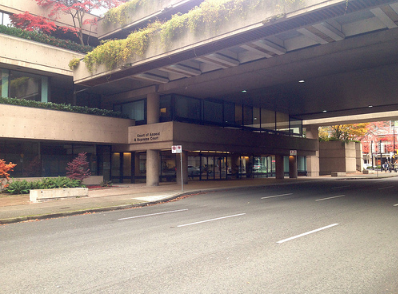Breaking
Court sides with suspended Victoria police chief but investigation continues

A spokesman for British Columbia’s police watchdog says a court ruling involving Victoria’s suspended police chief over sexually charged Twitter messages risks undermining the agency’s oversight powers. (Photo: Richard Eriksson/Flickr)
VANCOUVER — A spokesman for British Columbia’s police watchdog says a court ruling involving Victoria’s suspended police chief over sexually charged Twitter messages risks undermining the agency’s oversight powers.
Rollie Woods of the Office of the Police Complaint Commissioner said the B.C. Supreme Court decision in the case of Chief Const. Frank Elsner could restrict the office from investigating disciplinary matters conducted internally by individual police departments.
“I’m not suggesting they would do this, but if the police decided that they were going to take a matter and put it in an internal-discipline stream and then come to a conclusion and the commissioner disagrees with their decision, there’s nothing he would be able to do about it,” Woods said in an interview Wednesday.
He was commenting after the release of a decision by B.C. Supreme Court Justice Christopher Hinkson, which narrows the scope of the commission’s investigation by quashing two of five allegations against Elsner.
The ruling found that an internal investigation by the Victoria Police Board reprimanded Elsner for discreditable conduct and misuse of his department’s devices after he sent inappropriate tweets to the wife of a subordinate officer.
Hinkson prohibited the police complaint commissioner from revisiting these two issues but said a probe could investigate whether Elsner contacted potential witnesses and if he gave misleading information to the subordinate officer and an independent investigator.
Elsner has been suspended with pay from his role as head of the Victoria Police Department since April 2016.
The embattled police chief petitioned the court last year to drop the investigations, saying he’s being targeted by a group that wants him gone as chief constable.
Woods said Hinkson’s ruling is a departure from past practice, where on a handful of occasions the commissioner disagreed with the decision by a police force to pursue a matter via internal investigation rather than externally, as a matter of public trust.
It’s relatively rare that the commissioner disagrees with the results of an internal-discipline process, Woods said.
“It may not turn out to make much of a difference down the road, but we won’t know until we’ve travelled that road and see what happens,” he said.
Woods added that the commission will have to update its internal practices to comply with the ruling.
Hinkson did not rule on Elsner’s request that the contents of the inappropriate Twitter messages be banned from publication, saying the decision is up to the commissioner.
A separate investigation into allegations against Elsner of workplace sexual harassment has been recommended to a closed-door discipline hearing, which will take place late next week.
A spokesman for the Justice Ministry said the government is unable to comment on the issue because a provincial election is underway.





















